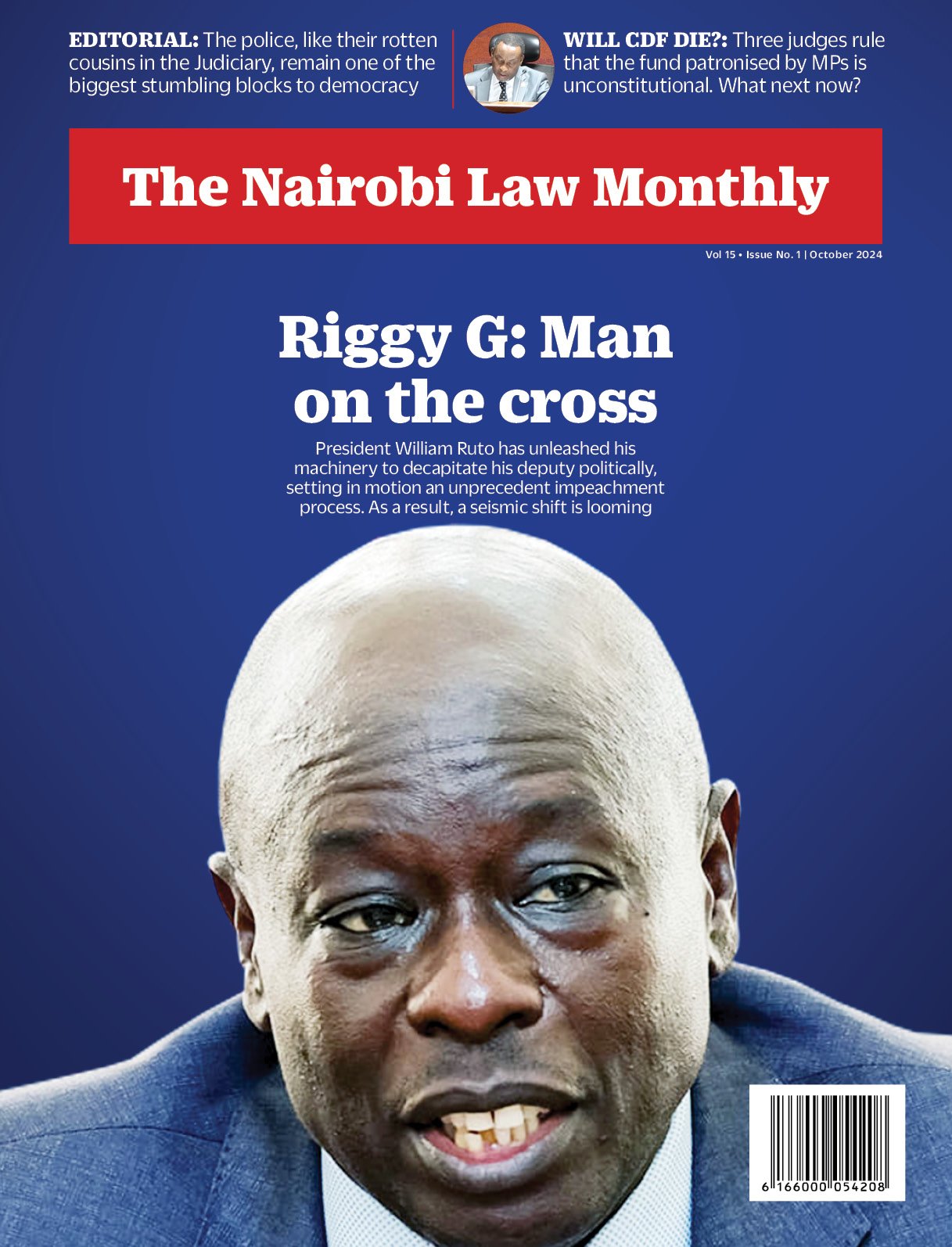By Newton Arori
Extrajudicial killings are a direct violation of the right to life – enshrined in both the Constitution of Kenya and various treaties that Kenya has ratified. Article 26(3) of the Constitution is explicit that “A person shall not be deprived of life intentionally, except to the extent authorised by this Constitution or other written law”. Such killings breed impunity by creating the impression that one can break the law and get away with it.
The judiciary has been mentioned adversely as being as culpable at the police in the fanning of this trend. This article suggests some remedies to this, not just for the judiciary but also for the other institutions involved.
It has been said that the chief motivation or excuse behind extra judicial killing is loss of faith in public institutions, especially the courts. Thus, the judiciary must strive to gain credibility in the eyes of the public. Allegations of bribery, for instance, even when they are not proven, seriously taint the image of the courts. To end the culture of extra judicial killings, therefore, the courts must be beyond reproach. In addition, there should be official acknowledgment of the unlawful executions, effective witness protection and mechanisms to hold police accountable.
Official acknowledgement
In 2009, the United Nations Special Rapporteur on Extrajudicial, Arbitrary or Summary Executions Philip Alston observed, “The president of Kenya should publicly acknowledge the widespread problem of extrajudicial executions and the need for sweeping reforms to the policing sector. His silence to date is conspicuous and problematic. Any serious commitment to ending the impunity that currently reigns in relation to the widespread and systematic killings by the police should begin with the immediate dismissal of the Police Commissioner. In the absence of such a step, it will be impossible to conclude that there is a strong commitment at the very top to deal with this problem”. The same can be said today in relation to the dismissal of the Inspector-General of police if recent police brutality is anything to go by.
Witness protection
A major challenge in the eradication of extra judicial killings is the unwillingness of witnesses to testify against accused persons, mostly police officers, due to intimidation and threats. Currently, there exists a witness protection agency established under the Witness Protection Act. Under Section 4(a) of the Act, the agency is mandated to set up a witness protection programme whose objective is to protect threatened, vulnerable and intimidated witnesses and family members from harm because of cooperating with the law enforcement agencies. This is in line with Article 50(8) of the Constitution of Kenya, which provides for the right to protection of witnesses or vulnerable persons.
Unfortunately, the witness protection agency is severely underfunded. This lack of resources often results in witnesses being forced to take personal measures to protect themselves. This insufficiency of support could be a pointer to unwillingness within the government to support witness protection. Adequate funding of the Witness Protection Agency is crucial to its effective functioning.
It is not practical for the police to investigate themselves regarding extra judicial killings. On this, Professor Alston observed:
“…there is zero internal accountability – the same police who kill are the same police who investigate police killings. There is no independent police Internal Affairs unit to reliably assess the legality of the use of force. In some cases, ‘inquiries’ are opened which drag on interminably and usually to no effect. In other cases, police refuse to permit families of the deceased or witnesses to the killings to register complaints. Those who persevere are often threatened with violence and there are reports of whole families ‘disappearing’ after vigorously pressing for police investigations…in short, the Kenya Police are a law unto themselves and they kill often and with impunity, except in those rare instances where their actions are caught on film or otherwise recorded by outsiders in ways that cannot be dismissed”.
Limping oversight body
The Independent Policing Oversight Authority (IPOA), tasked with investigating police misconduct, is apparently struggling to execute its mandate. A joint report by the Kenya National Commission on Human Rights and the Centre for Human Rights and Peace released in 2015 highlights various challenges facing IPOA. For instance, the report notes that the agency started on the wrong footing – it could probably have first gone to the public to sensitise them on their mandate before rolling out its work. IPOA is also understaffed, such that a few officers must handle numerous complains coming from different parts of the country.
Access to IPOA by the public remains a challenge since the Authority has not devolved its services to different parts of the country, only operating from its head office in Nairobi. Also, delays by IPOA in response have led to loss of confidence in the Authority by the public. Addressing these challenges – including by IPOA itself –will go a long way in the reduction and possible elimination of extra judicial killings in Kenya.

